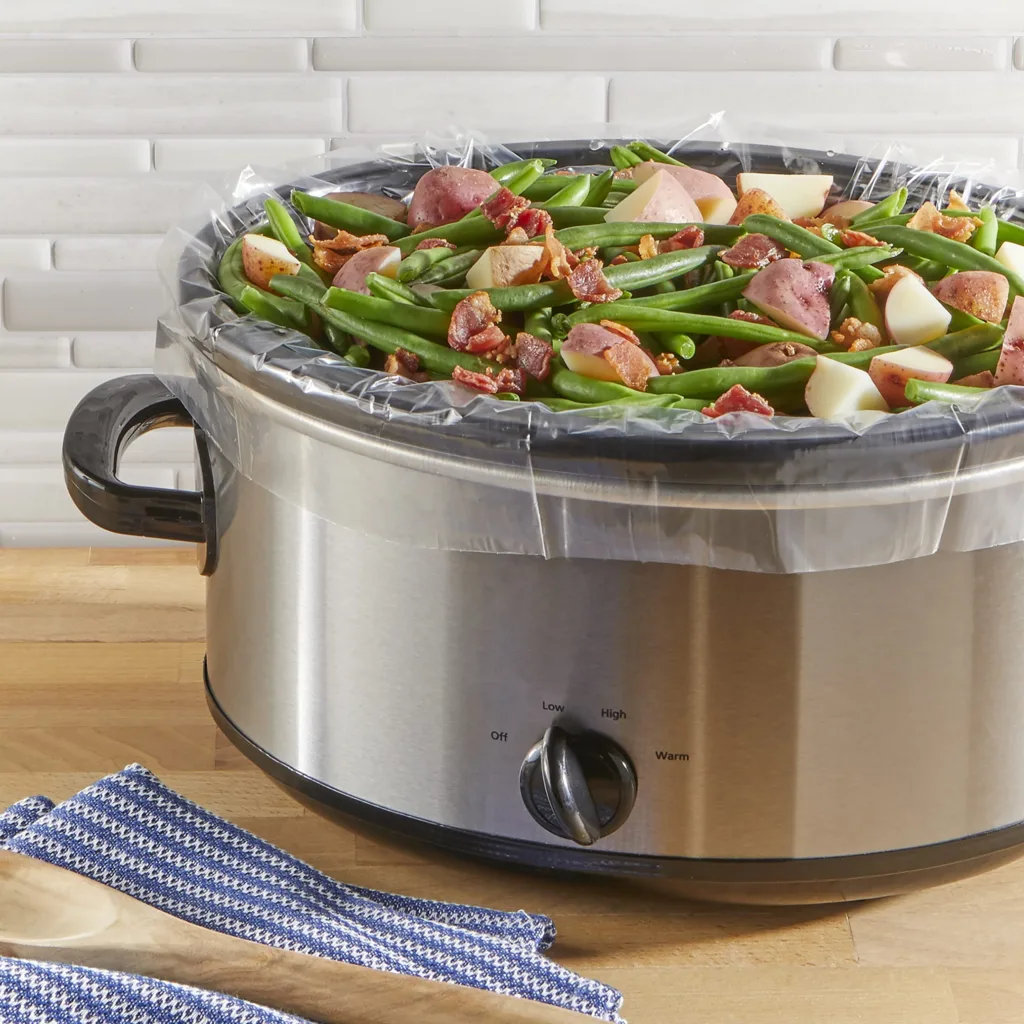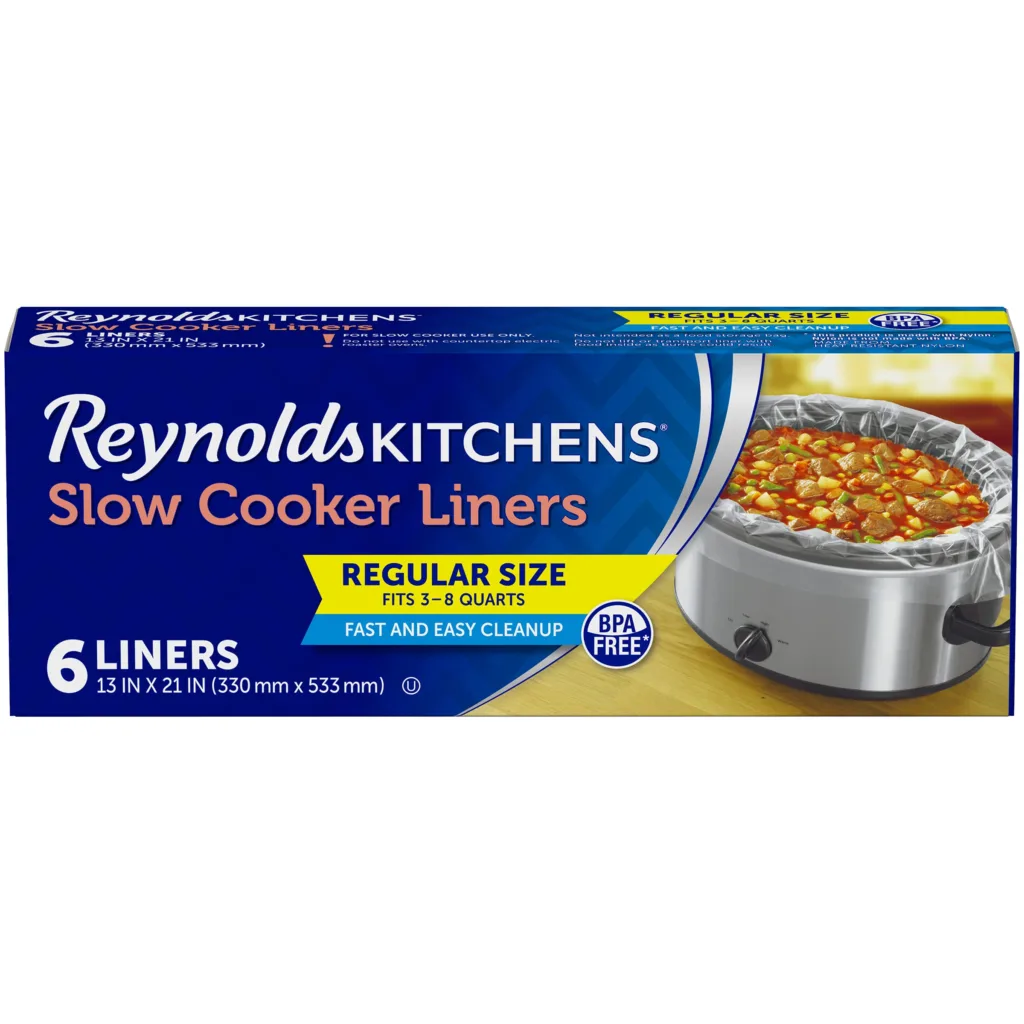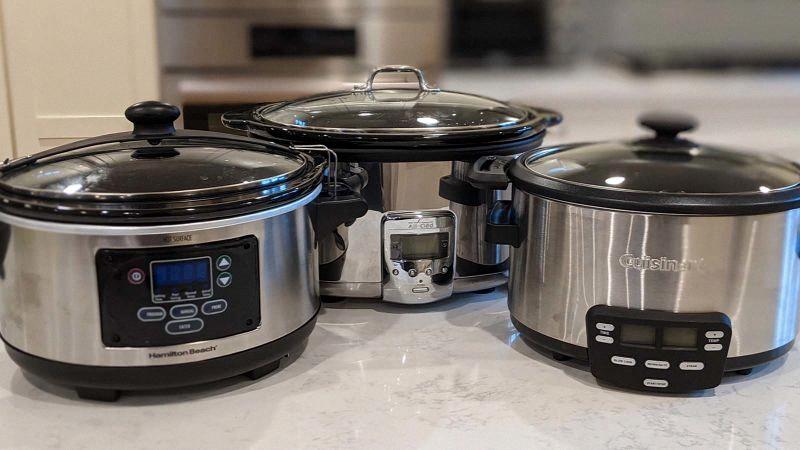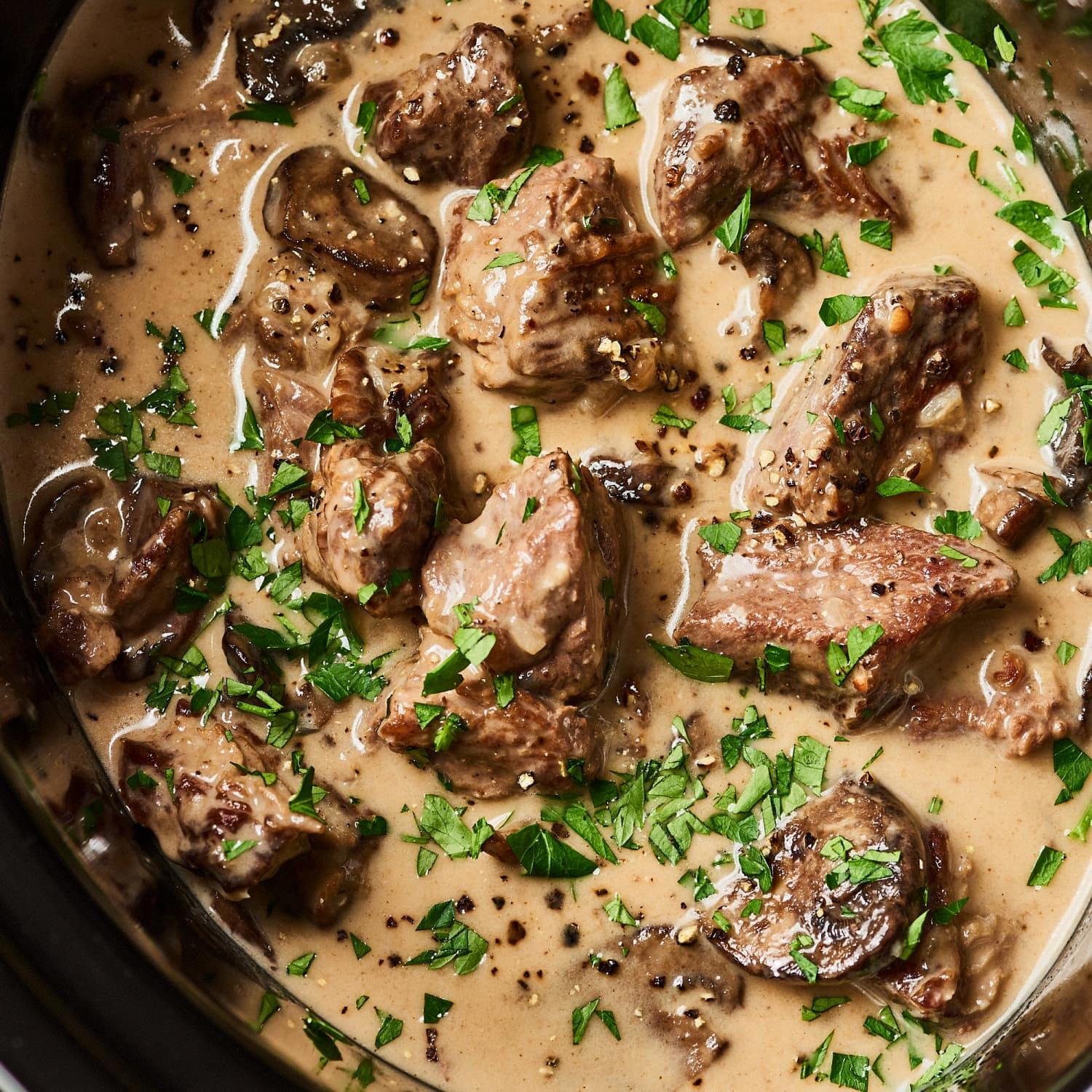As we become more conscious of what we put into our bodies, concerns about the safety of everyday items have become more prevalent. One question that has arisen is whether slow cooker liners, often used to make clean-up easier, can cause cancer.
First, it is important to understand what cancer is. Cancer is a disease that occurs when abnormal cells divide and multiply in an uncontrolled way. These cells can invade nearby tissues and spread to other parts of the body through the blood and lymphatic system. There are many factors that can contribute to the development of cancer, including genetics, lifestyle choices, and exposure to certain substances.
With regards to slow cooker liners, the concern lies in the potential for harmful chemicals to leach into food during the cooking process. Some types of plastic contain chemicals that are known to be potentially harmful, such as bisphenol A (BPA) and phthalates. BPA, a chemical used in the production of certain plastics, has been linked to varous health concerns, including cancer. Phthalates, which are used to make plastics more flexible, have also been associated with health issues like cancer and reproductive problems.
While some slow cooker liners may contain these chemicals, it is important to note that not all do. Many manufacturers now offer BPA-free and phthalate-free options. Additionally, slow cooker liners made of heat-resistant, food-safe nylon are generally considered safe to use.
As for ceramic crock pots, the concern is lead, a toxic substance that was once commonly used in glazes. However, most ceramic makers today are required to use lead-free glazes, meaning new, undamaged, high-quality ceramic crock pots are generally safe to use.
The potential for slow cooker liners to cause cancer is a valid concern, but it is important to consider the type of liner being used. Opting for BPA-free and phthalate-free options, or using heat-resistant, food-safe nylon liners can help alleviate any worries. Additionally, using high-quality ceramic crock pots that are free of lead should also ease any concerns. As with any potential health risk, it is always best to err on the side of caution and make informed decisions about what we put into our bodies.
Are Slow Cooker Liners Safe to Use?
Slow cooker liners are not inherently toxic, but it is important to choose a liner that is made with safe materials. Opt for BPA-free liners made of heat-resistant, food-safe nylon, which can withstand high temperatures without leaching harmful chemicals into your food. It is also important to follow the manufacturer’s instructions when using slow cooker liners, and to avoid using liners that have been damaged or torn. When used properly, slow cooker liners can make cleanup easier and more convenient, without posing any health risks.

The Potential Link Between Crock Pots and Cancer
There is no strong evidence to suggest that crock pots can cause cancer. However, some older models of crock pots may contain lead, which is a kown carcinogen. This is because lead was used in the glazes of some ceramic crock pots in the past. However, in recent years, regulations have been put in place to ensure that ceramic makers use lead-free glazes. Therefore, new, high-quality ceramic crock pots are considered safe for use. It is important to note that using crock pots to cook foods at high temperatures for extended periods of time may produce potentially harmful compounds such as acrylamide, which is a carcinogen found in some foods. However, these compounds are not unique to crock pot cooking and can also be produced in other cooking methods. Overall, using a modern, undamaged, and lead-free crock pot is considered safe for cooking food.
Alternative Uses for a Crockpot Liner
If you’re looking for a substitute for a crockpot liner, there are a few options to consider. First, you can try using aluminum foil. Simply line your slow cooker with a large sheet of foil, making sure to leave enough overhang to cover the edges. Then, add your ingredients and cook as usual. When you’re done, you can simply discard the foil and clean the slow cooker as usual.
Another option is to use a silicone baking mat. These are designed to be used in the oven, but they can also be used in a slow cooker. Simply place the mat in the bottom of your slow cooker and add your ingredients on top. The mat will prevent food from sticking to the bottom of the slow cooker and make cleanup a breeze. However, keep in mind that silicone mats can be more expensive than other options.
Finally, you can try using cooking spray to prevent food from sticking to the slow cooker. Simply spray the inside of your slow cooker with a non-stick cooking spray before adding your ingredients. This will help prevent food from sticking and make cleanup easier. However, keep in mind that you may need to use more cooking spray than you would with a liner, and some foods may sill stick even with cooking spray.
Overall, there are several options to consider when looking for a substitute for a crockpot liner. Consider your budget, the ingredients you’ll be cooking, and your personal preferences when deciding which option is best for you.
Are Slow Cooker Liners Worth the Investment?
Slow cooker liners can be a great investment for anyone who uses their slow cooker frequently. They are made of heat-resistant plastic and are designed to line the inside of your slow cooker, preventing food from sticking to the sides or bottom. The biggest benefit of using slow cooker liners is that they make clean-up incredibly easy. When you’re done cooking, you simply remove the liner and throw it away, leaving your slow cooker clean and ready to use again. This can save you a lot of time and effort compared to cleaning a slow cooker without a liner, which can require soaking and scrubbing to remove stuck-on food. Additionally, using a liner can help to prevent cross-contamination between different foods, as you can easily dispose of the liner aftr cooking raw meats or other potentially hazardous foods. While slow cooker liners aren’t strictly necessary for using a slow cooker, many people find them to be a convenient and worthwhile addition to their cooking routine. Overall, if you value ease of use and easy clean-up, slow cooker liners are definitely worth considering.
Are Reynolds Slow Cooker Liners Safe?
Yes, Reynolds slow cooker liners are safe to use. They are made of a special BPA-free material that is suitable for cooking foods in slow cookers on high, low, or warm settings. This blend of nylon has been safely used by Reynolds for over 30 years, and is designed to withstand the heat and pressure of slow cooking witout melting or releasing harmful chemicals. Additionally, the liners are FDA-approved and have been rigorously tested to ensure their safety for food contact. So you can use Reynolds slow cooker liners with confidence, knowing that they are a safe and convenient way to make slow-cooked meals.

The Benefits of Using Crockpot Liners
People use crockpot liners for several reasons. Firstly, usng a crockpot liner makes cleaning up after cooking much easier. The liner prevents food from sticking to the pot, which makes cleaning up a breeze. Secondly, using a crockpot liner helps to prevent cross-contamination of flavors. If you are cooking a variety of dishes or using your crockpot for meal prep, the liner can help prevent flavors from mixing together. Finally, using a crockpot liner can help extend the life of your crockpot. The liner prevents scratches and damage to the pot, which can help it last longer. Overall, using a crockpot liner can save time, prevent mess and make cooking more convenient.
The Safest Cookware for Health
When it comes to choosing the safest cookware for your health, there are several materials that are considered the best options. The first material is cast iron, which is a durable and long-lasting option that can last for generations. Cast iron cookware is great for cooking stews, soups, and even baking bread. It is also a great source of dietary iron, which is important for optimal health.
Stainless steel is another safe cookware material that is widely used in kitchens. It is non-reactive and doesn’t leach any harmful chemicals into your food. This makes it a great option for cooking acidic foods like tomatoes, which can react with oter metals and leach into your food.
100% non-toxic ceramic is also a great choice for cookware. It is made from natural materials like clay and sand, and it doesn’t contain any harmful chemicals like PFOA or PTFE. Ceramic cookware is also versatile and can be used for baking, roasting, and broiling.
Glass cookware is another safe material that is great for baking and cooking in the oven. It is also non-reactive and doesn’t leach any harmful chemicals into your food. However, glass cookware can be fragile and may break if not handled properly.
Lastly, enamel-coated cast iron is a great option for those who want the benefits of cast iron but don’t want to deal with the maintenance. The enamel coating is made from glass and is non-reactive. It also makes cleaning the cookware easier and prevents rusting.
In conclusion, choosing the right cookware is essential for maintaining good health. Cast iron, stainless steel, 100% non-toxic ceramic, glass, and enamel-coated cast iron are all safe and healthy options that can be used for a variety of cooking needs.
The Potential Link Between Nonstick Pots and Cancer
No, there is no evidence to suggest that usig nonstick pots and pans causes cancer. The American Cancer Society has stated that there are no proven risks to humans from using cookware coated with Teflon or other non-stick surfaces. Teflon is made with a chemical called polytetrafluoroethylene (PTFE), which is considered safe for cooking at normal temperatures. However, it is important to follow the manufacturer’s instructions for proper use and care of nonstick cookware. Overheating or scratching the surface can release harmful fumes or chemicals, which can be dangerous. To ensure the safety of nonstick cookware, it is recommended to avoid using metal utensils or abrasive cleaners, and to replace the cookware if it becomes damaged or worn. Overall, when used properly, nonstick cookware is a safe and convenient option for cooking.
Recalling Crock Pots: Investigating the Reasons Behind the Recall
Crock-Pot multi-cookers are being recalled due to a potential safety hazard. The product can pressurize even when the lid is not fully locked, which can lead to the lid suddenly detaching while the cooker is in use. This poses a risk of burns to consumers from hot food and liquids being ejected from the product. Therefore, the company has recalled the product to ensure the safety of consumers. If you own a Crock-Pot multi-cooker, it is important to check if your model is affected and take appropriate action to ensure that you and your family are safe.

Source: cnn.com
Do Crockpot Liners Contain Harmful Chemicals?
Crockpot liners are designed to make cooking and cleaning up easier. However, there has been some concern about whether or not these liners can leach chemicals into your food. The good news is that if you choose a liner that is FDA-approved and free of BPA and BPA substitutes, you can minimize the potential for chemicals to leach into your food. Reynolds Kitchens Slow Cooker Liners and Crock-Pot Slow Cooker Liners are two excellent options that meet these criteria. By using these liners, you can enjoy the convenience of slow cooking withut worrying about any harmful chemicals in your food.
Using a Crockpot Without a Liner
Yes, you can absolutely use a crockpot wthout a liner. Slow cookers are designed to be used without any additional accessories, including liners. However, using a liner can make the cleaning process much easier and save you time and effort in the long run.
If you choose not to use a liner, you will need to clean the crockpot thoroughly after each use. Be sure to use a non-abrasive cleaner and a soft sponge or cloth to avoid scratching the surface. You may also want to soak the crockpot in warm soapy water to help loosen any stuck-on food.
It’s worth noting that using a liner can also help with food safety. A liner can prevent cross-contamination between different foods and can also help prevent any harmful chemicals or materials from leaching into your food.
Ultimately, the decision to use a liner or not is a personal one. If you prefer to use a liner, there are many options available on the market, including disposable and reusable options. If you choose not to use a liner, just be sure to clean your crockpot thoroughly and take proper food safety precautions.
Is It Safe to Use Parchment Paper in a Slow Cooker?
Yes, parchment paper is safe to use in a slow cooker. In fact, it can be very helpful when baking in a slow cooker as it allows for easy removal of the baked goods and helps to prevent sticking to the crock. When uing parchment paper in a slow cooker, it is important to make sure the paper is not touching the heating elements or sides of the crock as it can become a fire hazard. Additionally, it is recommended to trim any excess parchment paper that may hang over the edges of the crock to prevent it from catching fire or interfering with the cooking process. Overall, using parchment paper in a slow cooker is a safe and convenient way to bake a variety of dishes.
Reusing Slow Cooker Liners
Yes, you can reuse slow cooker liners. However, it depends on the type of liner you are using. If you are using the plastic one-time bag liners, they are not meant to be reused and should be discarded after each use. On the oter hand, if you are using silicone liners, they are designed to be used multiple times and can be washed and reused. Silicone slow cooker liners are made of high-quality food-grade silicone, which is BPA-free and non-toxic. They are safe to use in your slow cooker and can save you money in the long run by reducing the need for disposable liners. It is important to follow the manufacturer’s instructions for cleaning and storing the silicone liners properly to ensure their longevity and functionality.

Source: thekitchn.com
Using Foil Instead of Parchment Paper in a Slow Cooker
While aluminum foil and parchment paper may seem interchangeable in some cooking applications, they are not always interchangeable in the slow cooker.
Aluminum foil can be used in the slow cooker, but it’s important to be cautious. If you’re cooking a dish with a low liquid content, like lasagna or sweet potato casserole, you can use foil to help prevent the food from sticking to the sides of the slow cooker. Simply line the slow cooker with a piece of foil, making sure to leave enough overhang to cover the food. Then, add your ingredients and cook as directed.
However, it’s important to note that aluminum foil is not heat-resistant in the same way that parchment paper is. If you’re cooking something that requires a high temperature, like bread or pastries, parchment paper is a safer option. Additionally, if you’re cooking something with a high acid content, like tomato sauce, aluminum foil can react with the acid and leave a metallic taste in your food.
In summary, while you can use aluminum foil in the slow cooker for low liquid dishes, it’s important to consider the temperature and acidity of your dish befre deciding whether to use foil or parchment paper.
Conclusion
Cancer is a complex disease that can affect anyone at any age. It is caused by the uncontrolled growth and spread of abnormal cells in the body. The good news is that many types of cancer can be prevented or treated if detected early. It is important to maintain a healthy lifestyle by eating a balanced diet, exercising regularly, avoiding tobacco and excessive alcohol consumption, and protecting yourself from the sun. Additionally, it is essential to get regular cancer screenings and to seek medical attention if you notice any unusual symptoms or chanes in your body. With advances in medical research and technology, there is hope for those living with cancer. Through early detection, prevention, and treatment, we can continue to work towards a world without cancer.
